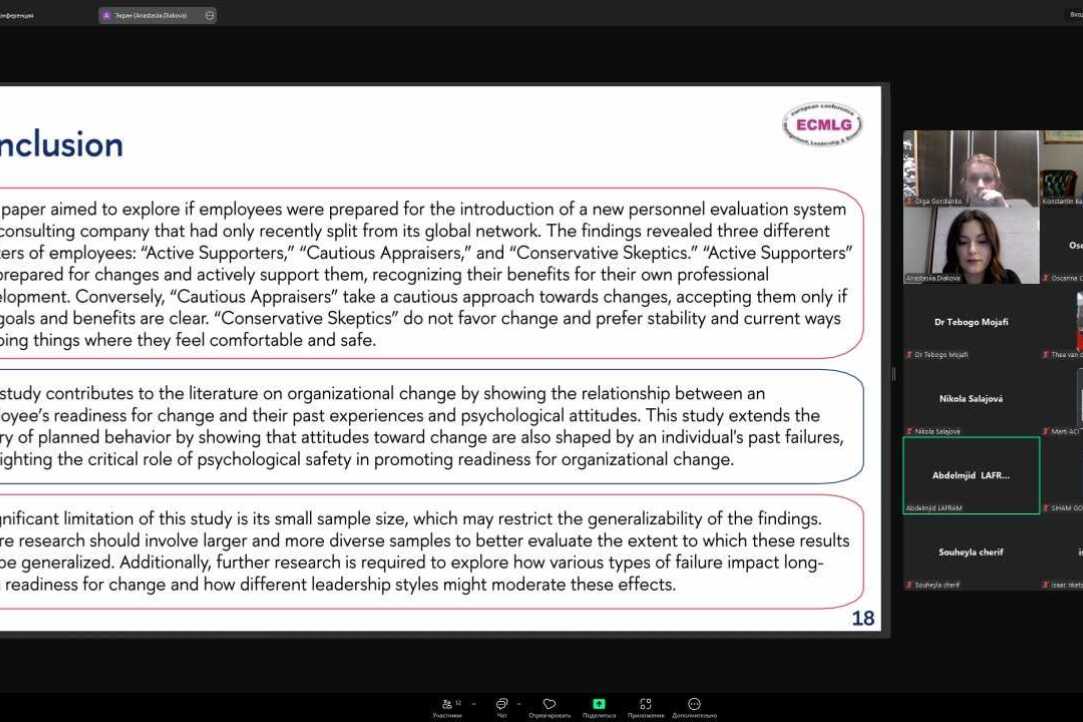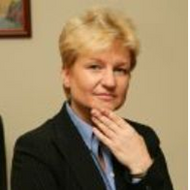- A
- A
- A
- ABC
- ABC
- ABC
- А
- А
- А
- А
- А
- HSE University
- Educational Departments
- HSE Graduate School of Business
- Department of Organisational Behaviour and Human Resource Management
- News
- Participation in the ECMLG 2024 International Conference Dedicated to Leadership
 Management practices of Russian companies. Vol. 1
Management practices of Russian companies. Vol. 1
Stepanov A. K., Лихачев А. А., Silchev V. et al.
M.: Higher School of Economics Publishing House, 2022.
In press
Tatiana Aleksandrova, Anand A., Pelsőci B. L. et al.
Review of International Business and Strategy. 2025. Vol. 35. No. 2/3. P. 260-303.
Zinchenko M., Bagrationi K., Gordienko O. A.
In bk.: Proceedings of the 23rd European Conference on e-Learning - ECEL 2024. Academic Conferences International Limited, 2024. Ch. 55. P. 451-457.
 Cracking CROC's talent: teaching note
Cracking CROC's talent: teaching note
Mondrus O., Osipova A.
Case collection: HSE Graduate School of Business. 521-0108-8. The Case Centre, 2021

Participation in the ECMLG 2024 International Conference Dedicated to Leadership

In their work, the authors investigated employees' reluctance to embrace organizational change, using the implementation of a new employee evaluation system as a case study during a consulting company's exit from a global network. They also developed recommendations to overcome this reluctance based on methodologies within Fishbein and Ajzen’s Theory of Planned Behavior and Amy Edmondson’s concept of Execution-as-Learning.
The results of the study indicate that employees' readiness for organizational change is influenced not only by their attitude structures toward the change, openness to new processes, a desire for self-enhancement, and understanding of the change’s goals, objectives, principles, and potential outcomes, but also by their past failures and how they perceive them.
Employees who view past failures as opportunities for learning and growth tend to be more enthusiastic about organizational changes and adapt to them more readily—an approach that is crucial for successful change implementation. Conversely, employees who regard past failures negatively and focus on avoiding mistakes and maintaining stability demonstrate lower readiness to embrace change.
The presentation garnered significant interest, reflecting the growing influence and recognition of HSE University Business School’s contributions to the academic field. Achievements such as this continue to strengthen the department's position on the international stage and highlight its commitment to advancing research in the field of management in general and leadership in particular.
Konstantin Bagrationi
Associate Professor
Olga Tunkevichus
Lecturer
- About
- About
- Key Figures & Facts
- Sustainability at HSE University
- Faculties & Departments
- International Partnerships
- Faculty & Staff
- HSE Buildings
- HSE University for Persons with Disabilities
- Public Enquiries
- Studies
- Admissions
- Programme Catalogue
- Undergraduate
- Graduate
- Exchange Programmes
- Summer Schools
- Semester in Moscow
- Business Internship
- © HSE University 1993–2025 Contacts Copyright Privacy Policy Site Map
- Edit
